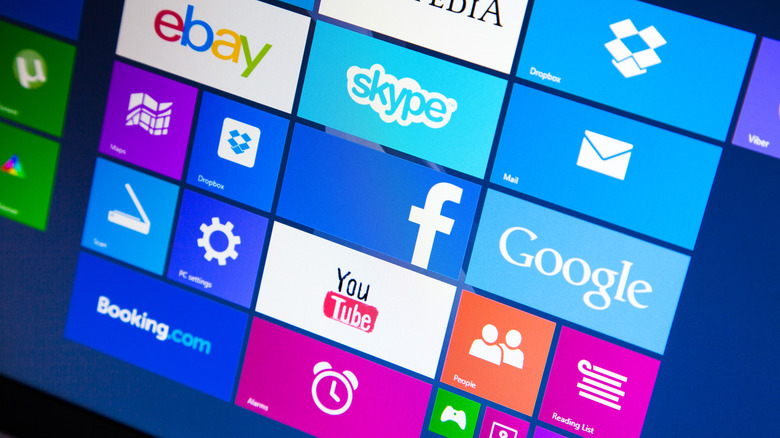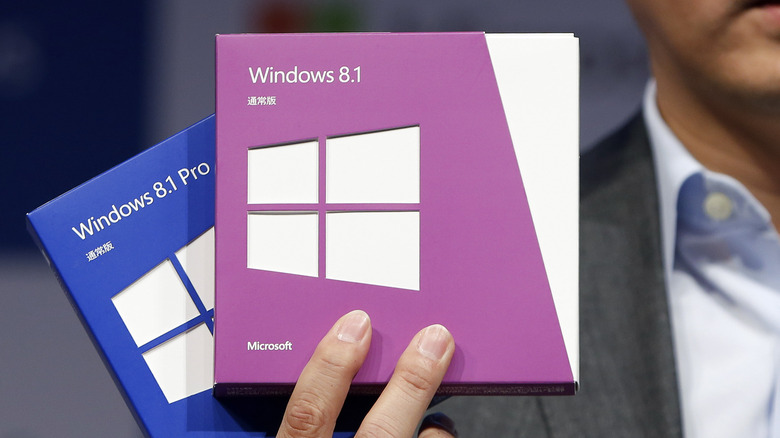Microsoft Is Reminding Windows 8.1 Users That The End Is Nigh
Despite previously saying that Windows 10 would be the last version of Windows it would release, Microsoft is now pushing people to upgrade to Windows 11. The company has been a bit less aggressive in that regard compared to Windows 10, mostly because many existing PCs can't support the latest Windows release in the first place. On the opposite end of the spectrum, however, Microsoft also has to move on and slowly drop older versions of Windows. After almost a decade since it launched, that date is coming for Windows 8.1, and Microsoft has started showing a full-screen reminder to its users that it's time to make arrangements to move over to at least Windows 10 in the next six months.
Windows 8.1 is notable for being Microsoft's fix (mildly speaking) for the numerous criticisms thrown at Windows 8. It became a hybrid between the old and the new, returning access to a regular desktop and providing a more traditional — but still different — Start Menu. It brought with it what would be the last version of Internet Explorer and tried to make Metro (later Modern) apps more prominent as the way forward, trying to give Windows an experience similar to iOS and Android.
Unsurprisingly, not everyone was satisfied with those remedies, especially since they made the disconnect between two versions of Windows painfully obvious. It wouldn't be until Windows 10 that Microsoft would finally get the mix right, but for those stuck with Windows 8, Windows 8.1 was a stopgap measure. It was also a safe haven for those who weren't ready to upgrade to Windows 10, but that safety will be gone next year.
Nagging users about the end of support
According to Bleeping Computer, the latest cumulative update for Windows 8.1 installs what is basically a full-screen notification about the operating system's impending retirement. It basically says that support for Windows 8.1 is ending on January 10, 2023, giving users time to upgrade to Windows 10 or migrate to another operating system. It isn't time to panic yet, though, since this doesn't mean that their computers will suddenly stop working.
What this EOS means is that there will no longer be fixes and security patches for Windows 8.1 beyond that date, at least not for consumer users. Enterprise customers will have a different end-of-life date, but that will eventually come, too. Windows 8.1 users can continue about their business even after their date if they are okay with running into potential security vulnerabilities and bugs that might never get fixed.
These users could upgrade to Windows 10, but, unsurprisingly, Microsoft is recommending the latest Windows 11 version. That, however, also means needing to upgrade the PC anyway because computers that launched with or upgraded to Windows 8.1 are unlikely to meet Windows 11's absolute minimum hardware requirements. As for those who will stick with Windows 8.1, they have the option to get reminded again later or after January 10, 2023. More advanced users can also employ a registry workaround to silence that reminder for good.

